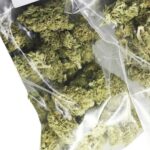IT might be weird to think about in the moment, but sharing a kiss can be beneficial to your mouth.
This is because the act of kissing activates certain biological processes you might not be aware of.
While there are benefits to kissing, when it comes to oral health, risks also exist. Learn more about both the positive and negative oral health effects associated with this gesture.
What’s really exchanged in a kiss?
According to one study, you have more than 700 species of bacteria and organisms in your mouth.
These bacteria are found in your saliva and on your oral surfaces, including your teeth, tongue, cheeks, and surrounding areas.
As the study explains, your tongue, in particular, is responsible for many of the microorganisms that wind up in your saliva.
So, what happens when two people kiss?
In a single kiss, lasting approximately 10 seconds, a whopping 80 million bacteria can be transferred from mouth to mouth!
Oral health benefits of kissing
You may question how the exchange of saliva and bacteria could possibly be healthy, but kissing may offer some notable oral health benefits.
For starters, kissing can increase salivary flow. Saliva is important because it helps to wash away excess food debris in the mouth and neutralises harmful acids that can cause tooth decay.
Some organisms in your saliva can help to decrease bacterial growth and even slow down plaque formation.
Certain organisms in saliva help stop the growth of harmful bacteria, such as those responsible for oral thrush or strains of streptococcus bacteria, which play a part in tooth decay.
In short, a healthy saliva flow promotes a healthy mouth.
And while kissing isn’t a sure path to immunity, kissing exposes you to more germs, which can help to boost your immune system. So, to some degree, you’re strengthening your body’s resistance to infectious organisms when sharing a kiss.
Risks of swapping saliva
There is always some risk of illness when meeting bodily fluid. Kissing can make you susceptible to contagious illnesses, such as the common cold, herpes simplex virus or certain mouth warts.
Kissing can also transmit the bad bacteria that lead to cavities. This risk is particularly important to keep in mind when kissing babies and newborns. They don’t have the bacteria that cause tooth decay in their mouths at birth, but if someone with infected saliva kisses them, those bacteria can then colonise.
How to maintain oral health when kissing
The act of kissing has its benefits and risks, and it can ultimately affect your oral health. Follow these tips and best practices to ensure that your gesture has no unintended consequences:
• Avoid kissing babies directly on the lips to prevent putting them at risk for tooth decay;
• Do not kiss someone if you — or the person — are ill or have any mouth sores present;
• Maintain optimal oral hygiene, which includes brushing your teeth twice daily, flossing once daily and visiting your dentist every six months.
It’s in everyone’s best interest to maintain excellent oral and bodily health. Keep in mind these risks and benefits of kissing on oral health and feel good about sharing this intimate gesture safely.
Dr Sharon Robinson DDS has offices at the Dental Place Cosmetix Spa, located at shop #5, Winchester Business Centre, 15 Hope Road, Kingston 10. Dr Robinson is an adjunct lecturer at the University of Technology, Jamaica, School of Oral Health Sciences. She may be contacted at 630-4710. Like their Facebook page, Dental Place Cosmetix Spa.










